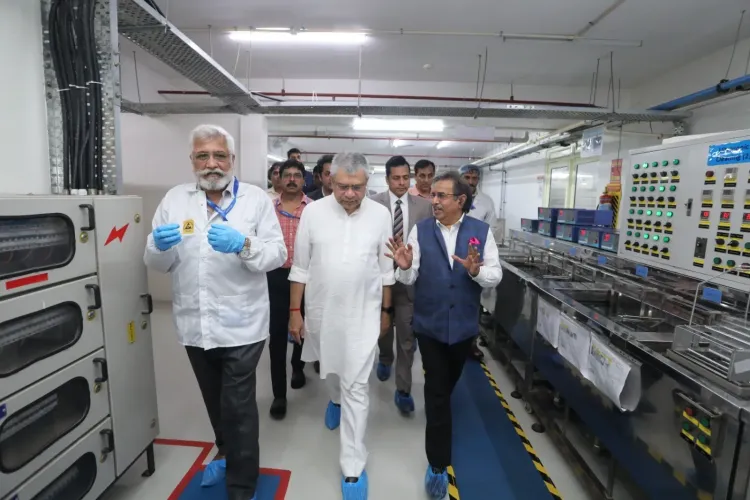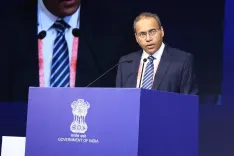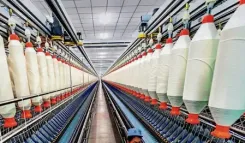Is This India’s First Tempered Glass Manufacturing Facility?

Synopsis
Key Takeaways
- First tempered glass manufacturing facility in India inaugurated.
- Joint venture between Optiemus Infracom and Corning.
- Initial investment of Rs 70 crore.
- Phase 1 capacity of 25 million units annually.
- Over 5,100 direct jobs expected by Phase 2.
Noida, Aug 30 (NationPress) The Union Electronics and IT Minister, Ashwini Vaishnaw, inaugurated the first-ever tempered glass manufacturing plant in India, located in Noida. This facility is a collaborative effort between Optiemus Infracom, an Indian manufacturer of electronic products, and Corning, the leading innovator in materials science globally.
Vaishnaw expressed enthusiasm for the partnership between Optiemus and Corning, highlighting the rapid evolution of India's component ecosystem. He noted that in the past 11 years, electronics manufacturing has surged sixfold, leading to a robust industry valued at approximately Rs 11.5 lakh crore, with exports reaching around Rs 3.5 lakh crore. This achievement reflects Prime Minister Narendra Modi's vision.
He stated, 'Our goal is to produce every component required for mobile devices right in India soon.' The minister also emphasized the importance of fostering research and development domestically, aiming for India to emerge as a global player in the industry.
With the launch of this tempered glass facility, India is poised to see the emergence of ‘made in India’ chips as well. Currently, the electronics manufacturing sector is thriving, providing approximately 25 lakh jobs.
This plant, with an initial investment of Rs 70 crore, boasts advanced infrastructure that will facilitate the transformation of raw materials into high-quality tempered glass, as stated by Optiemus Infracom.
The first phase of the facility is set to have a production capacity of 25 million units annually, creating direct employment for over 600 individuals.
In phase two, Optiemus plans to escalate production to 200 million units per annum for both domestic and international markets, with an additional investment of Rs 800 crore, generating over 4,500 direct job opportunities.
The tempered glass market in India is projected to exceed 500 million pieces, with a retail value of around Rs 20,000 crore.
'This is a pivotal moment for India's electronics manufacturing landscape and the 'Make in India' initiative. Despite being one of the largest mobile phone markets globally, India has heavily depended on imports for tempered glass,' remarked Ashok Kumar Gupta, Chairman of Optiemus Infracom.









